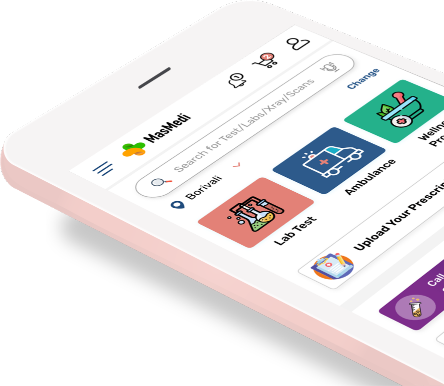Sample Type
Gender
Age Group
Blood/Urine
Male/Female
All Age Group
Complete Blood Count (CBC):- High-density lipoprotein (HDL) cholesterol is known as the good cholesterol because it helps remove other forms of cholesterol from your bloodstream. Higher levels of HDL cholesterol are associated with a lower risk of heart disease. Fasting Blood Sugar (FBS):- Elevated levels are associated with diabetes and insulin resistance, in which the body cannot properly handle sugar (e.g. obesity). Goal values: Less than 100 mg/dL = normal. Between 110–125 mg/dL = impaired fasting glucose (i.e., prediabetes) Post Prandial Blood Sugar (PPBS):- Postprandial blood sugar  the amount of sugar in your blood after you eat  is an important indicator of metabolic health. If your blood sugar is high on a regular basis, you may be at higher risk of long-term health conditions, such as heart disease, stroke, and type 2 diabetes. Hemoglobin A1c (HbA1c):- The hemoglobin A1c (HbA1c) test measures the amount of blood sugar (glucose) attached to your hemoglobin. Hemoglobin is the part of your red blood cells that carries oxygen from your lungs to the rest of your body. It is an important blood test that gives a good indication of how well your diabetes is being controlled. Lipid Profile:- A lipid profile is a blood test that measures the amount of cholesterol and fats called triglycerides in the blood. These measurements give the doctor a quick snapshot of whats going on in your blood. Cholesterol and triglycerides in the blood can clog arteries, making you more likely to develop heart disease. Liver Function Test:- Liver function tests can be used to: Screen for liver infections, such as hepatitis. Monitor the progression of a disease, such as viral or alcoholic hepatitis, and determine how well a treatment is working. Measure the severity of a disease, particularly scarring of the liver (cirrhosis) Thyroid Function Test:- Thyroid function tests are blood tests which help to check the function of your thyroid gland. They are mainly used to detect an underactive thyroid gland (hypothyroidism) and an overactive thyroid gland (hyperthyroidism). Vitamin B12:- Vitamin B12 is needed to form red blood cells and DNA. It is also a key player in the function and development of brain and nerve cells. Vitamin B12 binds to the protein in the foods we eat. In the stomach, hydrochloric acid and enzymes unbind vitamin B12 into its free form. Vitamin D:- Vitamin D helps regulate the amount of calcium and phosphate in the body. These nutrients are needed to keep bones, teeth and muscles healthy. A lack of vitamin D can lead to bone deformities such as rickets in children, and bone pain caused by a condition called osteomalacia in adults. Kidney Profile:- Kidney function test results can tell you whether your kidneys are functioning typically or not. Most function tests look for two measurements: GFR of less than 60 could indicate kidney disease. Urine albumin-to-creatinine ratio (UACR) of more than 30 milligrams per gram could be a warning sign of kidney disease.
Advanced Body Profile includes 10 Test(s)
best labs
Option Near Youlab comparison
As per your budgetAffordable
Price GuaranteedUNBIASED ADVICE
On LabsSUNDAY LAB
Labs available on SundaysTracking health status made easy with the app. Now available on both Google Play Store and App Store. Book health tests and access your smart reports and health trackers anytime anywhere.
